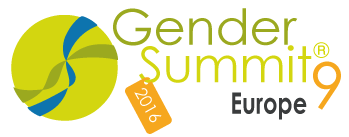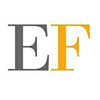GS9 Welcome messages
Welcome messages
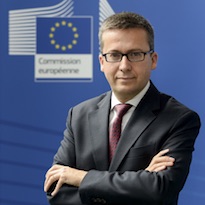
"I welcome the Summit’s objective to discuss how gender continues to be addressed in Horizon 2020, as well as how to further gender mainstreaming in my 3 priority areas of open innovation, open science and open to the world. The future of Europe’s knowledge economy will be entirely dependent on women reaching their full potential in STEM careers. My services have therefore created an Action Plan on Gender Equality in research and innovation, for implementation of the Council Conclusions of 1 December 2015, which addressed gender imbalances in research institutions and decision making.” Commissioner Carlos Moedas, Research, Science and Innovation, European Commission
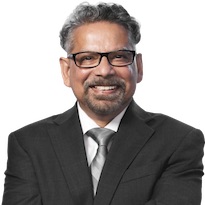 "On behalf of Canada’s Natural Sciences and Engineering Research Council (NSERC) I would like to wish all participants in the 9th International Gender Summit a warm welcome. As a life-long researcher and now President of NSERC, I am keenly aware of both the need and the benefits of increased sex and gender equity in science, technology, engineering and math (STEM). Gender Summits have played a significant role in raising awareness of sex and gender inequity, and sharing best practices for its reduction in STEM. I am positive that Gender Summit 9 will continue this excellent work. Looking ahead, NSERC is very excited to be partnering with the Fonds de recherche du Québec - Nature et technologies (FRQNT), to host the 11th International Gender Summit in Montreal. With the Montreal Summit, we will be working to take discussion beyond sex- and gender-based differences to focus on equity and diversity in the broadest sense. In particular, we seek to discuss the broader issues of the effects of culture, religion, ethnicity and gender on participation in the research and innovation workforce. We include specifically intersectionality as an issue of relevance in all its aspects: indigenous people, disability, sexuality, age, culture, social status etc. Diversity is also linked to interdisciplinarity in research. The Montreal Summit will expand dialogue on STEM to include the social sciences and health research and will address key themes such as global safety, food security, health, big data, and clean technologies, as well as the culture of science promotion. Enjoy the 9th International Gender Summit and we look forward to seeing you in Montreal in November 2017." Prof B. Mario Pinto, President, Natural Sciences and Engineering Research Council (NSERC), Canada.
"On behalf of Canada’s Natural Sciences and Engineering Research Council (NSERC) I would like to wish all participants in the 9th International Gender Summit a warm welcome. As a life-long researcher and now President of NSERC, I am keenly aware of both the need and the benefits of increased sex and gender equity in science, technology, engineering and math (STEM). Gender Summits have played a significant role in raising awareness of sex and gender inequity, and sharing best practices for its reduction in STEM. I am positive that Gender Summit 9 will continue this excellent work. Looking ahead, NSERC is very excited to be partnering with the Fonds de recherche du Québec - Nature et technologies (FRQNT), to host the 11th International Gender Summit in Montreal. With the Montreal Summit, we will be working to take discussion beyond sex- and gender-based differences to focus on equity and diversity in the broadest sense. In particular, we seek to discuss the broader issues of the effects of culture, religion, ethnicity and gender on participation in the research and innovation workforce. We include specifically intersectionality as an issue of relevance in all its aspects: indigenous people, disability, sexuality, age, culture, social status etc. Diversity is also linked to interdisciplinarity in research. The Montreal Summit will expand dialogue on STEM to include the social sciences and health research and will address key themes such as global safety, food security, health, big data, and clean technologies, as well as the culture of science promotion. Enjoy the 9th International Gender Summit and we look forward to seeing you in Montreal in November 2017." Prof B. Mario Pinto, President, Natural Sciences and Engineering Research Council (NSERC), Canada.
"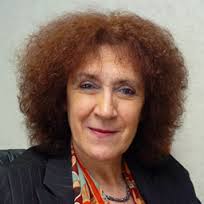 As a Gender Summit supporter and as a representative of the Mexican National Council for Science and Technology (CONACYT) I would like to share with you the wonderful experience we had hosting this important event in Mexico City, where we welcomed people from 24 different nations. The GS8 was the first, of hopefully many more editions, adding the Latin American voice and particularly a Mexican perspective to the Gender Summit movement. Within our theme, 'Science without borders: Improving impact by interlinking gender, geographic, disciplinary and educational dimensions', we addressed issues that affect everyone everywhere, but in many different ways. We must work together to find creative and innovative solutions to our common problems. The Gender Summits gather us to share knowledge and best practices with a gender perspective. 'Conocimiento que transforma' is our motto in CONACYT, and it means that knowledge is powerful tool for transformation. Through science, we can transform our reality and our environment in a way that benefits us all. We are living difficult times that demand more from us. An inclusive science must and can be the answer to many of the challenges that our generation is facing, and will be the only answer to the challenges that will face future generations building a sustainable world. We send you many regards from this part of the world and wish you the best in GS9Eu!" Prof Julia Taguena, Deputy Director, National Council of Science and Technology (CONACYT), Mexico.
As a Gender Summit supporter and as a representative of the Mexican National Council for Science and Technology (CONACYT) I would like to share with you the wonderful experience we had hosting this important event in Mexico City, where we welcomed people from 24 different nations. The GS8 was the first, of hopefully many more editions, adding the Latin American voice and particularly a Mexican perspective to the Gender Summit movement. Within our theme, 'Science without borders: Improving impact by interlinking gender, geographic, disciplinary and educational dimensions', we addressed issues that affect everyone everywhere, but in many different ways. We must work together to find creative and innovative solutions to our common problems. The Gender Summits gather us to share knowledge and best practices with a gender perspective. 'Conocimiento que transforma' is our motto in CONACYT, and it means that knowledge is powerful tool for transformation. Through science, we can transform our reality and our environment in a way that benefits us all. We are living difficult times that demand more from us. An inclusive science must and can be the answer to many of the challenges that our generation is facing, and will be the only answer to the challenges that will face future generations building a sustainable world. We send you many regards from this part of the world and wish you the best in GS9Eu!" Prof Julia Taguena, Deputy Director, National Council of Science and Technology (CONACYT), Mexico.
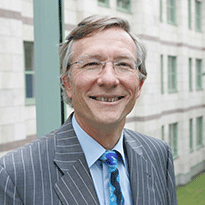 "Women’s share of PhDs, researchers, full professors and university rectors is in Europe very roughly 50%, 30%, 20% and 10% respectively. With our present level of knowledge it is very difficult, if not impossible to believe that this descending series of figures has a rational justification, that they reflect women´s increasing lack of merit, skills, competence or performance when the upper echelons of academia and research are approached. So they must be due to gender bias, be it conscious are unconscious. A 5% handicap in each submission of a research project leads to an 80% cumulated handicap after 30 submissions, a figure typical of a researcher’s life. This assumption, which is supported by some data, could easily explain the above series of percentages. But if we want to efficiently fight the bias we have to understand where it comes from." Prof Rolf Tarrach, President, European Universities Association (EUA). Read Rolf's full essay.
"Women’s share of PhDs, researchers, full professors and university rectors is in Europe very roughly 50%, 30%, 20% and 10% respectively. With our present level of knowledge it is very difficult, if not impossible to believe that this descending series of figures has a rational justification, that they reflect women´s increasing lack of merit, skills, competence or performance when the upper echelons of academia and research are approached. So they must be due to gender bias, be it conscious are unconscious. A 5% handicap in each submission of a research project leads to an 80% cumulated handicap after 30 submissions, a figure typical of a researcher’s life. This assumption, which is supported by some data, could easily explain the above series of percentages. But if we want to efficiently fight the bias we have to understand where it comes from." Prof Rolf Tarrach, President, European Universities Association (EUA). Read Rolf's full essay.
